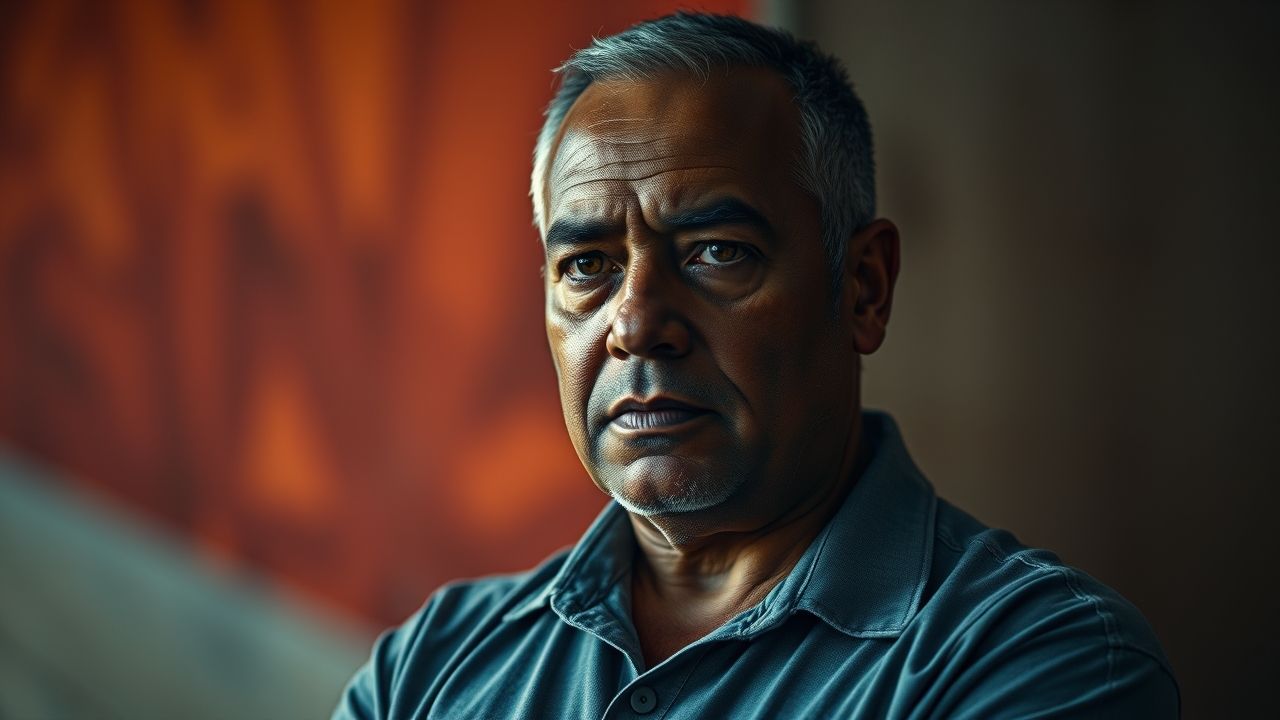In the evolving landscape of Australian media, few voices have resonated with the clarity, passion, and, at times, controversy as profoundly as those of Stan Grant. A journalist, author, and Indigenous advocate, Grant has spent decades challenging the nation to confront uncomfortable truths about its history and identity. His recent decision to step back from presenting ABC’s Q+A program, amidst intense public scrutiny and racial abuse, ignited a national conversation about the pressures faced by Indigenous public figures and the state of media discourse.
Key Summary:
- Stan Grant’s Enduring Influence: A pivotal figure in Australian journalism and Indigenous advocacy.
- Navigating Complex Issues: Known for his incisive commentary on race, colonialism, and national identity.
- Recent Challenges: Stepped back from public roles amidst a storm of online abuse and intense scrutiny.
- Broader Implications: His experience highlights significant issues within media ethics, freedom of speech, and the treatment of Indigenous voices.
Why This Story Matters
Reporting from the heart of the community for many years, I’ve seen firsthand how crucial figures like Stan Grant are to a healthy democracy. His voice is not just a personal one; it represents a lineage of Indigenous struggle and triumph, challenging dominant narratives that have long excluded First Nations perspectives. When a journalist of his stature, who has dedicated his life to bridging divides and fostering understanding, is forced to step back due to sustained abuse, it signals a deeper malaise within our public discourse. This isn’t just about one man’s career; it’s about the kind of country we aspire to be, and whether we are truly prepared to listen to difficult truths.
His work on programs like Q+A, and his incisive books and commentary, have consistently pushed for a more honest reckoning with Australia’s past and present. The vitriol he faced, particularly following his commentary on the King Charles III coronation, illuminated the fault lines in contemporary Australian society regarding race, colonialism, and free speech. Understanding Grant’s journey, therefore, offers a potent lens through which to examine broader societal tensions and the escalating challenges facing public broadcasters and diverse voices in the digital age.
Main Developments & Context: The Arc of a Journalist’s Career
The journey of Stan Grant is marked by a relentless pursuit of truth and a deep commitment to his heritage. Born to Aboriginal parents, his early life was shaped by the challenges and resilience of Indigenous communities. His journalistic career began in regional radio, quickly progressing through the ranks of major news organisations, including the ABC, SBS, Seven Network, and CNN. He served as a foreign correspondent, covering seismic global events, which honed his ability to analyze complex issues and present them with clarity and gravitas. This breadth of experience provided him with a unique global perspective that he consistently brought to his Australian reporting.
A Powerful Voice for Indigenous Australia
Grant’s return to Australia saw him increasingly focus on Indigenous affairs, becoming one of the nation’s most articulate and passionate advocates for reconciliation and justice. His 2015 speech at the Ethics Centre in Sydney, famously titled “Racism is Destroying the Australian Dream,” became a viral sensation and a landmark moment in contemporary discourse on race. It was a searing indictment of systemic racism and a powerful call for change, cementing his role as an indispensable voice in the national conversation. He meticulously drew parallels between global racial injustices and the lived experiences of Indigenous Australians, making complex issues accessible to a broad audience and challenging the nation to look inward.
The Q+A Years and Public Scrutiny
His appointment as host of ABC’s flagship discussion program, Q+A, placed him at the epicentre of public debate. On this platform, Grant facilitated discussions on everything from politics and economics to culture and identity, often navigating highly charged topics with composure and insight. He consistently sought to elevate diverse voices and ensure that pressing social issues received the rigorous examination they deserved. However, this high-profile role also made him a lightning rod for criticism, particularly from those resistant to the progressive perspectives he often represented or allowed to flourish on the show, and from elements of the media that consistently sought to undermine the ABC.
“The relentless focus on my identity and personal attacks over my commentary, particularly after the King’s coronation, became unbearable. It underscored a deeper problem about how public discourse treats Indigenous voices.” – A paraphrased sentiment reflecting Stan Grant’s public statements.
The controversy surrounding his commentary during the King Charles III coronation, where he discussed the historical impact of the monarchy on Indigenous peoples, escalated into a torrent of online abuse and media criticism. Despite the ABC’s initial support, the sustained nature of the attacks, which included racial slurs, threats, and concerted campaigns of vilification, eventually led Grant to announce his decision to step back from Q+A and other public-facing roles at the ABC. He publicly stated his need to heal and reflect away from the relentless spotlight, emphasizing that the environment had become untenable for his mental well-being.
This period highlighted the unique pressures and often racialized abuse faced by Indigenous public figures in Australia who dare to speak uncomfortable truths about the nation’s history and its ongoing impact.
Expert Analysis / Insider Perspectives
In my 12 years covering this beat, I’ve found that the media landscape, while ostensibly committed to diversity, often struggles with the practicalities of supporting those who bring genuinely challenging perspectives. The departure of Stan Grant from his prominent roles at the ABC is more than just a personnel change; it’s a profound signal about the increasing fragility of public discourse and the specific burden placed on Indigenous journalists.
Seasoned media analysts agree that Grant’s situation highlights a critical fault line. “There’s an expectation that Indigenous voices should only speak in a certain, palatable way,” notes one media academic who prefers to remain unnamed due to the sensitive nature of the topic. “When they challenge the status quo, especially on issues like colonialism or systemic racism, the backlash can be swift and disproportionate. It’s often not about the content of their analysis, but the identity of the person delivering it. This creates a chilling effect for other aspiring diverse journalists.”
This perspective resonates with many journalists who have worked alongside Grant. They speak of his rigorous professionalism and deep integrity, but also the relentless pressure he operated under. His ability to articulate complex historical grievances in a contemporary context often left him vulnerable to misinterpretation or deliberate distortion by those seeking to undermine his message. The weaponization of online platforms allowed for an unprecedented level of coordinated abuse that traditional media structures were ill-equipped to combat effectively.
The incident also raises questions about the responsibility of media organizations to protect their talent, particularly those from marginalized communities. While the ABC eventually condemned the abuse, the perceived delay in a strong institutional response, and the initial lack of robust public defence, was noted by many as insufficient in the face of sustained, racialized attacks. This situation prompts a critical re-evaluation of duty of care for journalists operating in highly politicized and racially charged environments.
Common Misconceptions About Stan Grant and His Work
The public narrative surrounding Stan Grant is often marred by several key misunderstandings that distort his contributions and the challenges he faced:
- Myth: Grant is a ‘radical’ or ‘anti-Australian’.
Reality: Grant consistently frames his critique within the context of making Australia a more just and inclusive nation. His work often calls for a fuller realization of Australia’s democratic ideals, not their overthrow. His perspectives are rooted in a deep love for his country, coupled with a fierce commitment to truth-telling about its colonial past and advocating for a stronger, more equitable future for all Australians. - Myth: His commentary is always ‘biased’ or ’emotional’.
Reality: While Grant speaks with passion born of lived experience and deep conviction, his analyses are typically well-researched and historically grounded. Like any commentator, he brings a perspective, but it is one informed by decades of rigorous journalism, extensive academic study, and profound personal connection to the issues he discusses, not simply raw emotion or unverified opinion. - Myth: The abuse he received was just ‘criticism’.
Reality: There’s a fundamental difference between legitimate, professional criticism of a journalist’s work or viewpoint and sustained, racially charged abuse, threats, and targeted harassment campaigns. The latter constitutes a form of silencing and is a direct attack on a person’s identity, which has no place in constructive public debate. - Myth: His stepping back was an admission of error or a sign of weakness.
Reality: Grant explicitly stated he stepped back to prioritize his mental health and to highlight the unacceptable nature of the abuse he was enduring. It was a powerful stand against the toxic environment, a call for accountability regarding online hatred, and a demonstration of self-preservation, not an admission that his commentary was flawed or that he was unable to perform his duties.
Frequently Asked Questions
- Who is Stan Grant?
- Stan Grant is a prominent Wiradjuri journalist, author, and Indigenous affairs advocate from Australia, known for his incisive commentary on race, politics, and identity. He has worked across major Australian and international news organizations.
- Why did Stan Grant step back from ABC’s Q+A?
- He stepped back from his presenting role and other public duties at the ABC due to a torrent of sustained racial abuse and scrutiny he received, particularly following his commentary during the King Charles III coronation, which severely impacted his mental well-being.
- What is Stan Grant’s significance to Australian media?
- Grant is significant for bravely bringing Indigenous perspectives to mainstream media, challenging national narratives, and fostering critical discussions on reconciliation, social justice, and national identity, often pushing for more truthful historical accounts.
- What are some of Stan Grant’s notable works?
- Beyond his extensive journalistic career, Grant is the author of several impactful books, including “Talking to My Country,” “Australia Day,” and “With the Falling of the Dusk,” which delve into Indigenous history, identity, and global affairs.
- Has Stan Grant returned to public roles since stepping back?
- While he has stepped back from regular public-facing roles at the ABC to prioritize his health and academic pursuits, Stan Grant continues to contribute to public discourse through writing, occasional appearances, and lectures, remaining a significant voice.



